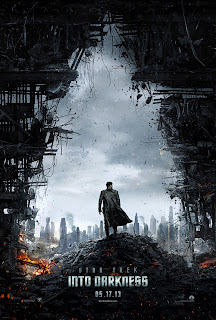That summer, I learned that being alone and being lonely are two very different things, and the latter is one of life's great sadnesses. I learned that a full life could feel empty without friends and co-workers, and because I was only living in Cleveland for a summer and I was working at a newspaper with lots of much-older adults, I didn't really have either.
Roxanne did something extraordinary, something that made me not just love it, but feel grateful to it and everyone involved in its making, especially Steve Martin and director Fred ("Rhymes with Pepsi") Schepisi. Roxanne made me feel less alone.
In a way that is hard to describe to anyone who hasn't seen the movie, Roxanne made me feel loved.
It was not made for me, personally, of course, but it felt that way, because it was made to ease the heartache of everyone who feels disconnected from life.
If a movie can soothe a heart, Roxanne is that movie. It is that lovely and earnest, casting a sort of enchanted spell that I don't think I've ever experienced in another movie and maybe never will again. That summer, I took a bus three different times from downtown Cleveland to the suburban theater where Roxanne was playing, and in the ensuing decades, I've seen Roxanne more times than I can count, and I still smile and feel a little light-headed afterward.
This adaptation of Cyrano de Bergerac must be the sweetest and most kind-hearted movie ever made; there isn't a single mean person in it. Even the bullies who give fire chief C.D. Bales (Steven Martin) a hard time about his outlandishly large nose are only mildly insulting.
C.D. moves to a little mountain town completely removed from anything resembling reality. Also in town for the summer is the beautiful Roxanne (Daryl Hannah), an astronomer studying a passing comet. She falls instantly in love with C.D., the only catch is, she doesn't know it's him. She thinks it's handsome, rugged, dumb-as-a-shoe Chris (Rick Rossovich), and because he has a grotesquely large nose that he thinks makes him ugly, C.D. helps Chris woo her.
If you wonder whether Roxanne will learn the true identity of her suitor, you haven't been paying attention to the last few hundred years of romantic literature and drama.
Of course she does, but that's not the point of Roxanne. It's a movie that exists to evoke a feeling, to provide hope for the hopeless that they, too, can be loved. Everyone can be loved. Roxanne really, really believes that. It wants you, whoever you are, to know that your problems, whatever they may be, aren't insurmountable. That your heart, however damaged you think it is, is worthwhile.
With a lovely, jazzy, memorable score by Bruce Smeaton -- a true standout among movie scores -- and the leisurely pacing of a lovestruck walk in the park on a Sunday afternoon, Roxanne wants only to make you believe that anything is possible for anyone. The real magic of Roxanne is that for at least a little while after you see it, you do believe just that.



